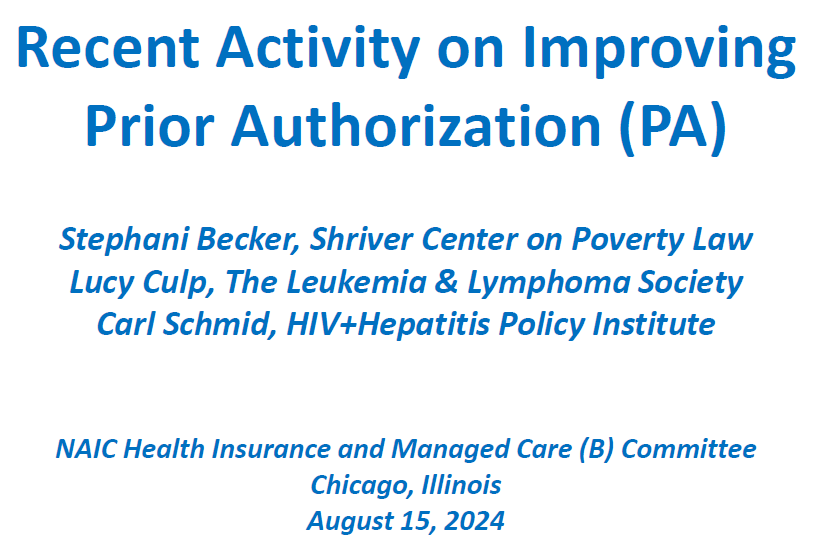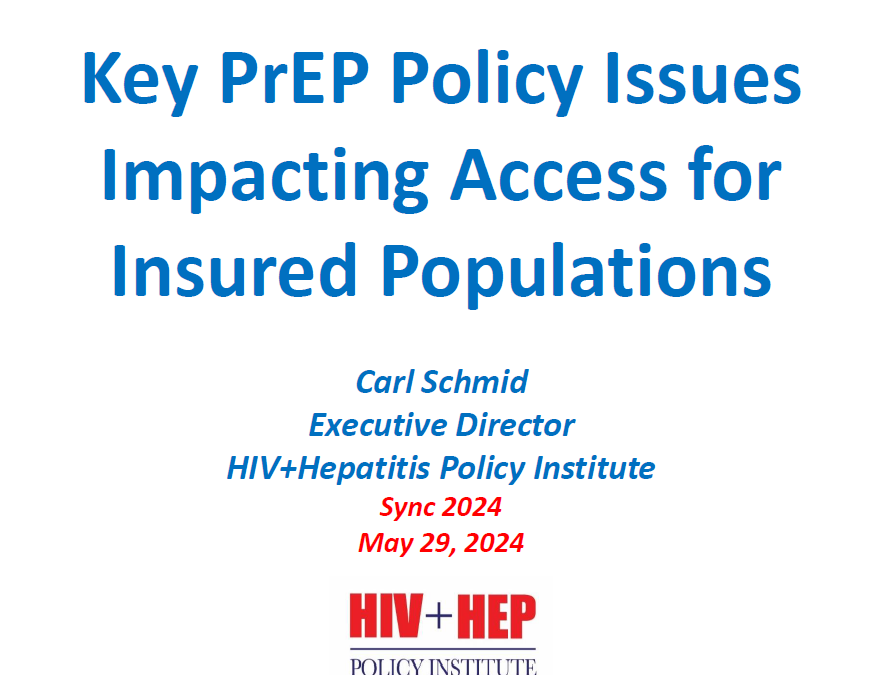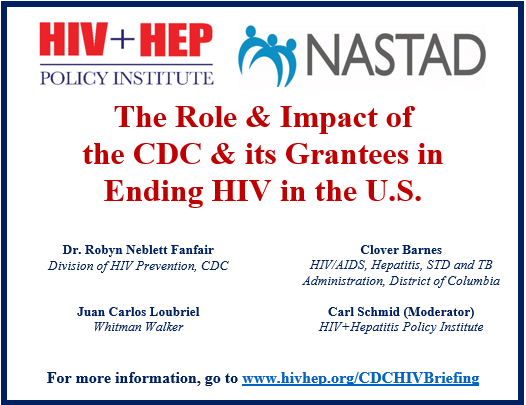Speaking at InformaConnect’s #Copay2024, Kevin Herwig gave a policy update on developments related to copay accumulators, maximizers, and alternative funding programs and the failure of HHS to enforce the HIV+Hepatitis Policy Institute’s Court victory a year ago or fully close the loophole allowing insurers to designate prescription drugs as non-essential health benefits.

Recent activity on improving prior authorization
At the NAIC Summer Meeting, consumer representatives, including Carl Schmid, provide an update on recent state legislation to regulate insurers’ use of the prior authorization process for patients. This includes a NY state law prohibiting Prior Authorization for all PrEP drugs and a pending bill in CA that addresses the use of AI in the prior authorization process.

Key PrEP policy issues impacting access for insured populations
Carl Schmid spoke to Synchronicity 2024 about how patients are still often unlawfully charged high copays for PrEP medication and related services covered that should covered with $0 cost-sharing under ACA preventive service protections.

The Role & Impact of the CDC & its Grantees in Ending HIV in the U.S.
Please RSVP to attend The Role & Impact of the CDC & its Grantees in Ending HIV in the U.S. on Tuesday, June 4th from 3:00-4:30 pm in Rayburn 2060 sponsored by HIV+Hepatitis Policy Institute and NASTAD and in cooperation with the Office of Congresswoman Barbara Lee, co-chair of the HIV/AIDS Caucus.

Biomedical HIV Prevention Summit: Scaling Up PrEP Now by Leveraging Existing Programs
HIV+Hepatitis Policy Institute will convene a panel on Friday, April 19, 2024, at the Biomedical HIV Prevention Summit to examine how PrEP is provided today by entities including community health centers, CBOs, pharmacies, telemedicine platforms, and state health departments. We will examine how this work is financed by leveraging existing programs and systems, as well as current barriers and what can be done to close PrEP access gaps in underserved populations.
